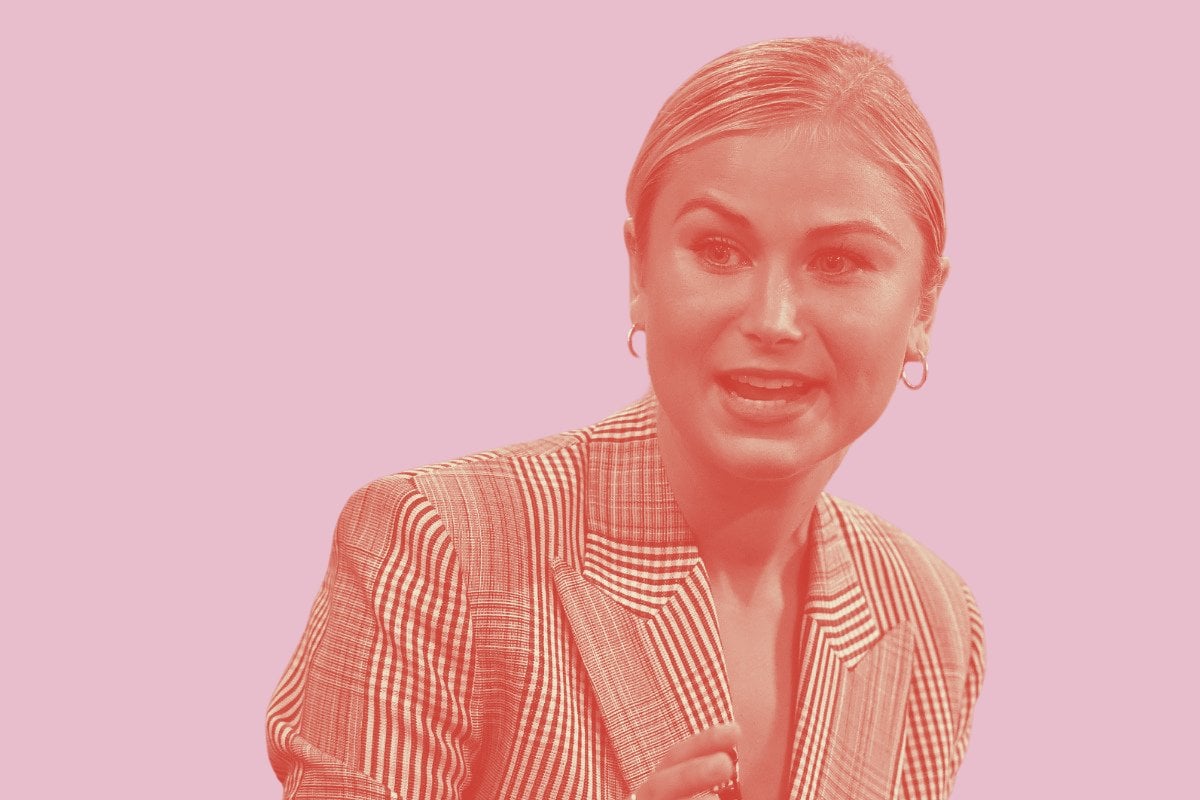
Warning: The following deals with details of child sexual abuse and rape.
For years, Tasmanian woman Grace Tame was legally gagged from telling her story of surviving child sexual abuse. Forced to sit in silence, while the abuser — her Year 9 teacher — publicly described his crimes as "awesome" and appealed for sympathy for all the things he'd lost as a result of the case against him.
After a concerted campaign spearheaded by journalist Nina Funnell, the state law preventing survivors from identifying themselves in the media was scrapped in April 2020. That effort is called #LetHerSpeak, and that's precisely what Grace has been doing ever since.
That advocacy saw her named 2021 Australian of the Year, and today, saw her command the lectern at the National Press Club in a searing address about her mission to end child sexual abuse.
Watch: Grace Tame on the power of survivors' stories.
These are some of the most powerful moments from her speech.
1. The importance of survivors' stories.
"It is so important for our nation, the whole world, in fact, to listen to survivors' stories. Whilst they're disturbing to hear, the reality of what goes on behind closed doors is more so. And the more details we omit for fear of disturbance, the more we soften these crimes, the more we shield perpetrators from the shame that is resultantly misdirected to their targets.
